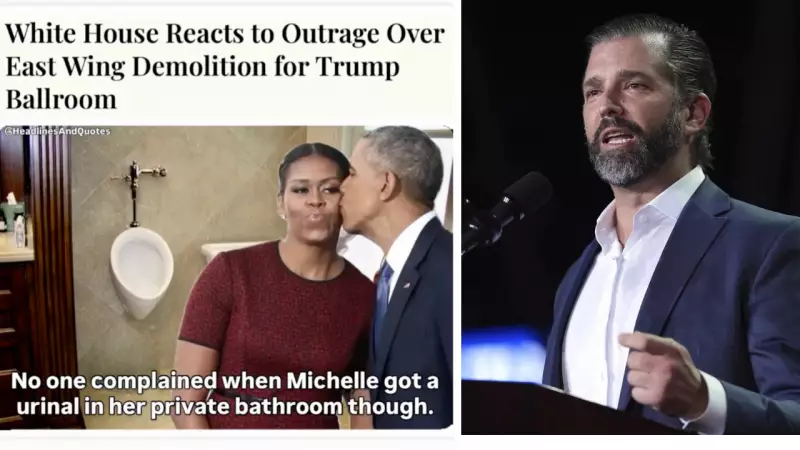
In a dramatic escalation of the ongoing White House renovation controversy, Donald Trump Jr has launched a blistering defence of the planned demolition, taking an unexpected swipe at former First Lady Michelle Obama in the process.
The Trump scion didn't mince words when addressing critics of the proposed changes to the executive mansion, making what many are calling a "below the belt" attack on Mrs. Obama's own historical renovations during her time in the White House.
The Provocative Counterattack
"Where was this outrage when Michelle Obama was making her changes?" Trump Jr questioned pointedly during his recent public statements. "Nobody complained back then, but suddenly everyone's an architectural preservationist when it comes to our family."
This comparison has ignited fresh controversy in political circles, with critics accusing the younger Trump of dragging the former First Lady into a dispute where she previously had no involvement.
Historical Context and Double Standards
The core of Trump Jr's argument rests on what he perceives as selective outrage from political opponents and media commentators. He emphasized that every presidential family has made modifications to suit their needs and preferences during their tenure.
"The White House has always evolved with each administration," he stated. "The selective amnesia about previous renovations is frankly ridiculous and shows the biased treatment our family receives."
Political Fallout and Public Reaction
The remarks have sparked intense debate across social media platforms and political commentary shows. Supporters see it as a justified calling out of hypocrisy, while detractors view it as an unnecessary personal attack on Michelle Obama.
Political analysts note that this incident represents the latest chapter in the ongoing tension between the Trump and Obama families, a dynamic that has characterized American politics for nearly a decade.
As the controversy continues to unfold, all eyes remain on how this public spat will influence the broader conversation about presidential legacy, historical preservation, and the increasingly personal nature of American political discourse.





